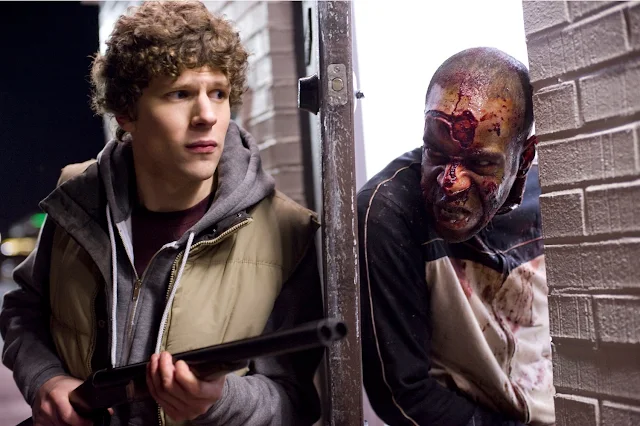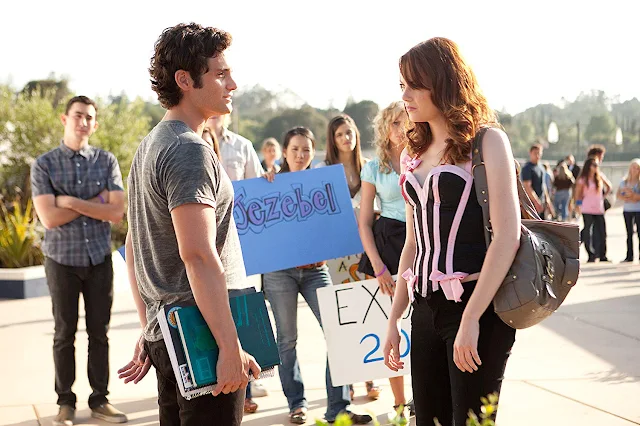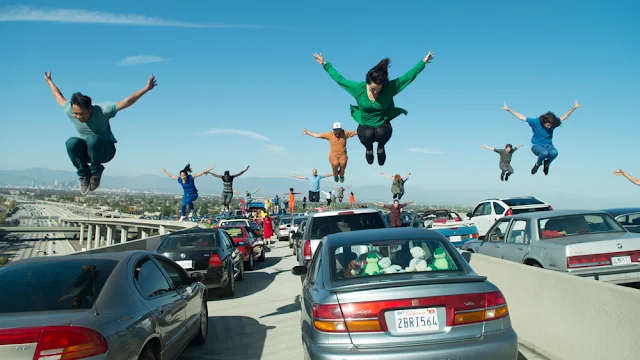 |
| Emma Stone in Bugonia |
Cast: Emma Stone, Jesse Plemons, Aidan Delbis, Stavros Halkias, Alicia Silverstone. Screenplay: Will Tracy, based on a film by Jang Joon-hwan. Cinematography: Robbie Ryan. Production design: James Price. Film editing: Yorgos Mavropsaridis. Music: Jerskin Fendrix.
Yorgos Lanthimos's Bugonia feels less inventively off-beat than some of his other films, like the macabre fable Dogtooth (2009), the dystopian fantasy The Labster (2015), or the sendup of the costume drama The Favourite (2018). That may be because it's a remake of the South Korean film Save the Green Planet! (2003), whose director, Jang Joon-hwan, was originally supposed to make it, so the material didn't originate in Lanthimos's imagination. Which is not to say it isn't full of his delirious inventiveness, especially since he's working with his favorite actress, Emma Stone, who seems to share his predilection for the absurd (viz. her work with Nathan Fielder and Benny Safdie on the 1923 series The Curse). Stone plays Michelle Fuller, a pharmaceuticals CEO who is kidnapped by Teddy Gatz (Jesse Plemons), who is convinced that she's an alien and that the Andromedan mother ship is about to return to Earth for her. Imprisoned in his basement, with only Teddy's timorous cousin, Don (Aidan Delbis), to guard her, Michelle proves resourceful and resistant. But is Teddy really deluded in his beliefs about her? What suspense the film generates comes from that question. Stone and Plemmons, the former indomitable and the latter sometimes explosively brutal, are at peak form. The only reservations I have lie in the rather cobbled-together ending of the film, which seems to me an apocalypse that the movie neither earns nor justifies.



















